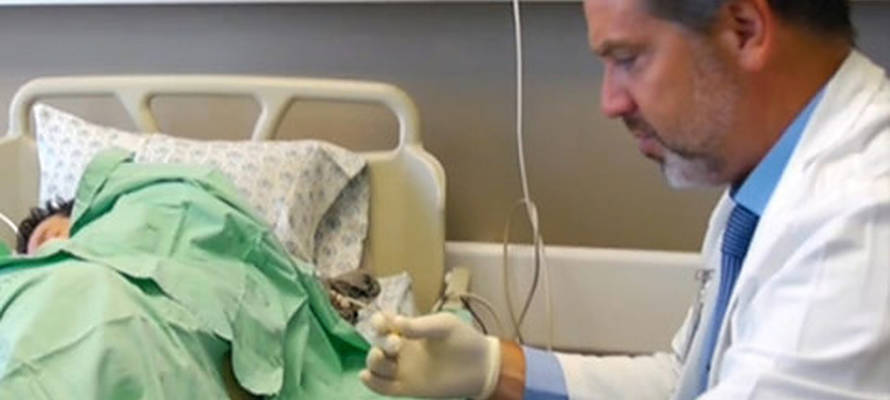Trial at Hadassah Hospital shows improvements in patients with progressive multiple sclerosis treated with stem cells.
By Yakir Benzion, United With Israel
A phase two study at Jerusalem’s Hadassah Ein Kerem Hospital has revealed significant clinical improvements in patients with progressive multiple sclerosis (MS) after being treated with NG-01 stem cells developed by NeuroGenesis, a biopharmaceutical company associated with Hadassah that develops cell therapies to combat neurodegenerative diseases.
The 14-month study tested how 48 patients responded to the treatment using NG-01 stem cells that are “autologous,” meaning that they are obtained from the patients themselves. The stem cells are obtained from the patient’s bone marrow cells and then cultured and enhanced before being returned to the patient with the potential to stimulate growth of nerve tissue, provoke an immune system response and protect the body’s nerves against degeneration.
“The treatment was well-tolerated, and the trial met all of its primary endpoints,” said lead principal investigator Prof. Dimitrios Karussis, head of Hadassah’s Multiple Sclerosis Center. “The patients’ improvement was in many cases quite remarkable and included regaining of motor function and noticeable effects on their cognitive abilities.”
The highly positive results included no detectable serious treatment-related safety issues, significantly fewer patients experienced treatment failure, and a very promising 58 percent of the patients treated with NG-01 did not show any evidence of disease activity during the entire treatment period with many patients showing a significant improvement in walking ability.
“Although we currently have several good treatment options for relapsing, remitting MS, we fall short in providing effective treatment for progressive MS that could substantially suppress the progression of disability,” said Prof. Karussis. “This trial provides encouraging results and suggests a potential for a new approach that may not only slow down the progression of the disease but even induce improvement and promote repair mechanisms in progressive MS.”
The researchers concluded that the results now need a phase 3 trial to confirm the findings. The technology is being further developed by NeuroGenesis, with a license from Hadasit, the Hadassah Medical Organization’s technology transfer company.
“Progressive MS is a chronic, debilitating disease with no satisfactory treatment to improve or reverse established disability,” said Tal Gilat, chief executive officer of NeuroGenesis. “We are therefore extremely pleased to witness the significant positive effect of our NG-01 cells.
“Following recent interactions with the [U.S.] Food and Drug Administration, we look forward to confirming and expanding these findings in a large multicenter MS trial and continuing advanced studies in additional indications, such as ALS.”




